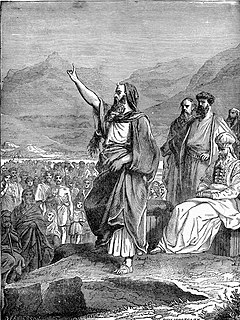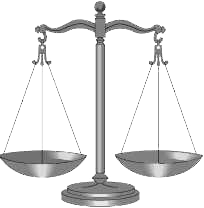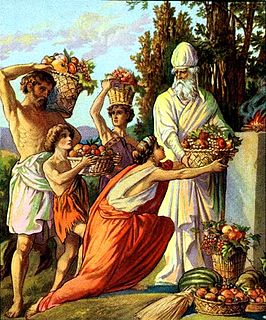 W
WDevarim, D'varim, or Debarim is the 44th weekly Torah portion in the annual Jewish cycle of Torah reading and the first in the Book of Deuteronomy. It constitutes Deuteronomy 1:1–3:22. The parashah recounts how Moses appointed chiefs, the episode of the Twelve Spies, encounters with the Edomites and Ammonites, the conquest of Sihon and Og, and the assignment of land for the tribes of Reuben, Gad, and Manasseh.
 W
WVa'etchanan is the 45th weekly Torah portion in the annual Jewish cycle of Torah reading and the second in the Book of Deuteronomy. It constitutes Deuteronomy 3:23–7:11. The parashah tells how Moses asked to see the Land of Israel, made arguments to obey the law, recounted setting up the Cities of Refuge, recited the Ten Commandments and the Shema, and gave instructions for the Israelites' conquest of the Land.
 W
WEikev, Ekev, Ekeb, Aikev, or Eqeb is the 46th weekly Torah portion in the annual Jewish cycle of Torah reading and the third in the Book of Deuteronomy. It comprises Deuteronomy 7:12–11:25. The parashah tells of the blessings of obedience to God, the dangers of forgetting God, and directions for taking the Land of Israel. Moses recalls the making and re-making of the Tablets of Stone, the incident of the Golden Calf, Aaron's death, the Levites' duties, and exhortations to serve God.
 W
WEikev, Ekev, Ekeb, Aikev, or Eqeb is the 46th weekly Torah portion in the annual Jewish cycle of Torah reading and the third in the Book of Deuteronomy. It comprises Deuteronomy 7:12–11:25. The parashah tells of the blessings of obedience to God, the dangers of forgetting God, and directions for taking the Land of Israel. Moses recalls the making and re-making of the Tablets of Stone, the incident of the Golden Calf, Aaron's death, the Levites' duties, and exhortations to serve God.
 W
WShofetim or Shoftim is the 48th weekly Torah portion in the annual Jewish cycle of Torah reading and the fifth in the Book of Deuteronomy. It constitutes Deuteronomy 16:18–21:9. The parashah provides a constitution — a basic societal structure — for the Israelites. The parashah sets out rules for judges, kings, Levites, prophets, cities of refuge, witnesses, war, and unsolved murders.
 W
WDeuteronomy 22 is the twenty-second chapter of the Book of Deuteronomy in the Hebrew Bible or the Old Testament of the Christian Bible. The book is one of the Books of the Torah. This chapter contains regulations concerning theft of property, protection of life, manners, and violence in sexual relations.
 W
WKi Teitzei, Ki Tetzei, Ki Tetse, Ki Thetze, Ki Tese, Ki Tetzey, or Ki Seitzei is the 49th weekly Torah portion in the annual Jewish cycle of Torah reading and the sixth in the Book of Deuteronomy. It constitutes Deuteronomy 21:10–25:19. The parashah sets out a series of miscellaneous laws, mostly governing civil and domestic life, including ordinances regarding a beautiful captive of war, inheritance among the sons of two wives, a wayward son, the corpse of an executed person, found property, coming upon another in distress, rooftop safety, prohibited mixtures, sexual offenses, membership in the congregation, camp hygiene, runaway slaves, prostitution, usury, vows, gleaning, kidnapping, repossession, prompt payment of wages, vicarious liability, flogging, treatment of domestic animals, levirate marriage, weights and measures, and wiping out the memory of Amalek.
 W
WKi Tavo, Ki Thavo, Ki Tabo, Ki Thabo, or Ki Savo is the 50th weekly Torah portion in the annual Jewish cycle of Torah reading and the seventh in the Book of Deuteronomy. It constitutes Deuteronomy 26:1–29:8. The parashah tells of the ceremony of the first fruits, tithes, and the blessings from observance and curses from violation of the law.
 W
WKi Tavo, Ki Thavo, Ki Tabo, Ki Thabo, or Ki Savo is the 50th weekly Torah portion in the annual Jewish cycle of Torah reading and the seventh in the Book of Deuteronomy. It constitutes Deuteronomy 26:1–29:8. The parashah tells of the ceremony of the first fruits, tithes, and the blessings from observance and curses from violation of the law.
 W
WVayelech, Vayeilech, VaYelech, Va-yelech, Vayelekh, Wayyelekh, Wayyelakh, or Va-yelekh is the 52nd weekly Torah portion in the annual Jewish cycle of Torah reading and the ninth in the Book of Deuteronomy. It constitutes Deuteronomy 31:1–30. In the parashah, Moses told the Israelites to be strong and courageous, as God and Joshua would soon lead them into the Promised Land. Moses commanded the Israelites to read the law to all the people every seven years. God told Moses that his death was approaching, that the people would break the covenant, and that God would thus hide God's face from them, so Moses should therefore write a song to serve as a witness for God against them.